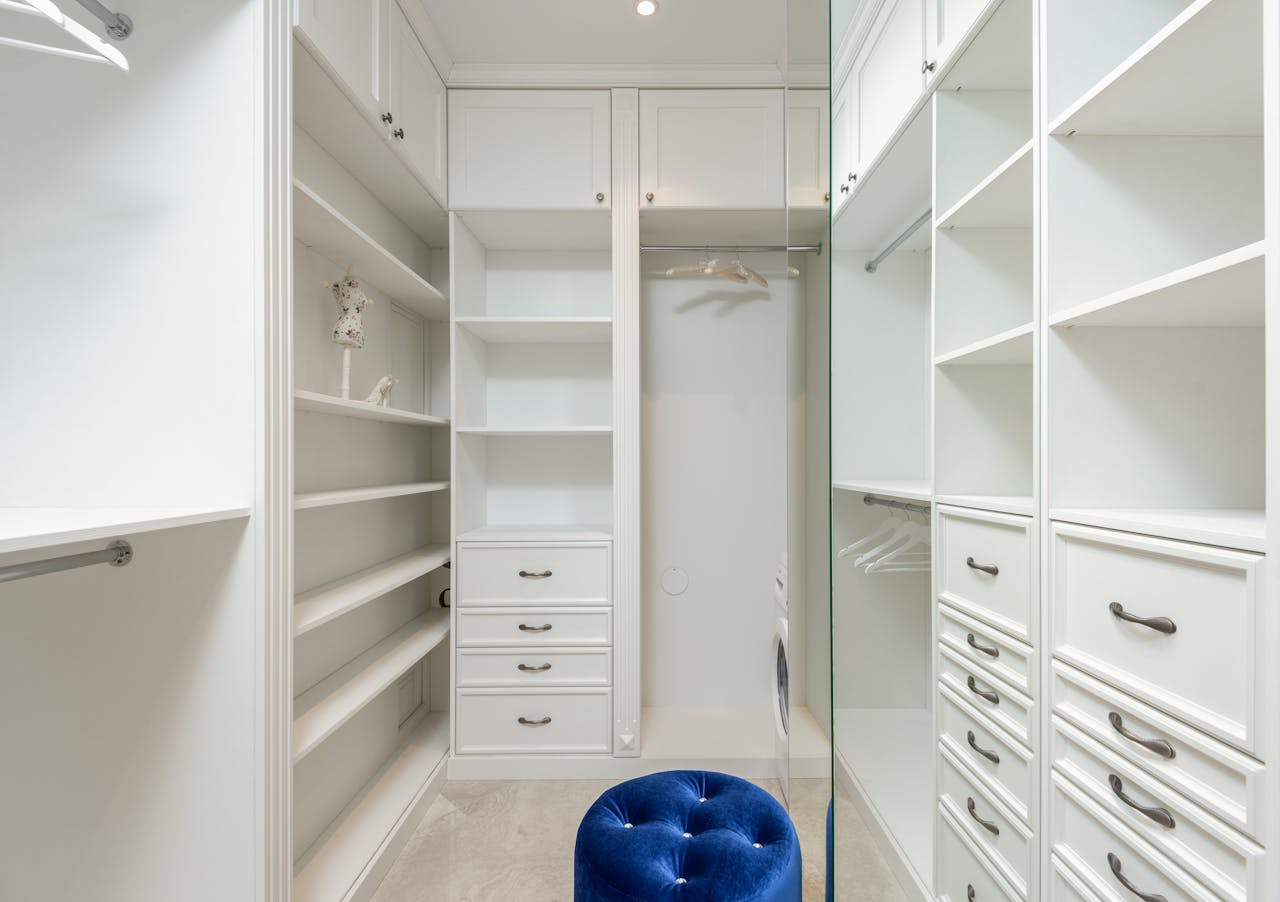Table of Contents
In the fast-paced workplace of today, designing a workspace that is both ergonomic and functional has become crucial. Modular desks and safe storage options are just two examples of how changing your workspace can improve ergonomics, increase productivity, and foster an innovative environment.
Importance of a Well-Designed Workspace
A well-designed workstation is more than just aesthetically pleasing. It is essential to both worker well-being and productivity. A well-designed space reduces distractions and fosters comfort. As a result, stress levels may drop and general job satisfaction may rise. This is greatly aided by features like well-organized storage, ergonomic furniture, and natural lighting. Employee comfort increases concentration and productivity, which is advantageous to the company as a whole. Furthermore, a well-designed workspace can leave a lasting impression on customers and guests by demonstrating the professionalism and attention to detail of the business.
Modular Desks: Flexibility and Efficiency
When it comes to efficiency and flexibility, modular desks are the best. They are easily reconfigurable to accommodate individual tasks or team collaborations, depending on the evolving needs of a workspace. As work demands change, this flexibility guarantees that the workspace will continue to be useful and pertinent. Additionally, modular desks frequently have lots of storage, which clears clutter and makes the space more orderly. By permitting height and layout adjustments, they also support ergonomic practices, which improve posture and lower the risk of work-related injuries. Essentially, modular desks offer a flexible solution that can change to accommodate the ever-changing needs of contemporary work environments.
Ergonomic Chairs: Health and Productivity
The purpose of ergonomic chairs is to lessen strain on the musculoskeletal system and support the body&8217;s natural posture. Purchasing high-quality ergonomic chairs can help avoid problems like carpal tunnel syndrome, neck strain, and back pain that are frequently associated with sedentary work. Users can personalize their seating arrangement with these chairs&8217; adjustable features, which include armrests, lumbar support, and seat height. This lowers the chance of long-term health issues while promoting comfort. Additionally, workers&8217; focus and productivity levels greatly increase when they are pain-free and comfortable. Ergonomic chairs are therefore essential for a productive and healthy work environment, not just a luxury.
Secure Storage Solutions
Data security is crucial in the current digital era. Physical security should not be disregarded, though. Secure storage options, like fireproof safes and lockable cabinets, guard against theft and damage to priceless belongings and confidential documents. With the knowledge that vital data and assets are protected, these storage choices offer comfort. Additionally, by making it simpler to find files and tools when needed, an orderly storage system improves efficiency. Employees can concentrate on their work as a result of the decreased time spent looking for items. Thus, safe storage options are essential to keeping a productive and safe work environment.
Lighting: Beyond Illumination
Any workspace must have adequate lighting since it affects productivity, mood, and energy levels. The best option is natural light because it increases vitamin D levels and lessens eye strain. When natural light is unavailable, high-quality artificial lighting ought to be utilized. For a variety of tasks, adjustable desk lamps and overhead lighting can supply the required illumination. It&8217;s also critical to take bulb color temperature into account; warmer light can produce a calming atmosphere, while cooler light is better for concentration. The overall atmosphere is improved by proper lighting, which makes the workspace cozier and more productive. Therefore, lighting is more than just providing light; it&8217;s also about fostering an atmosphere that allows workers to flourish.
Noise Control: Creating a Quiet Workspace
Keeping a productive workspace requires effective noise control. Overly loud noises can be annoying and impair focus and efficiency. Unwanted noises can be greatly reduced by using noise-canceling devices like carpeting, soundproof panels, and noise-canceling headphones. Establishing specific areas for collaboration and quiet can also help control noise levels, giving staff members the freedom to select the setting that best fits their work. Businesses can improve overall work performance by reducing stress and increasing focus by addressing noise pollution. Therefore, establishing a favorable working environment requires the implementation of noise control measures.
Personalization: Making the Space Your Own
Workspace personalization can greatly increase productivity and morale. The atmosphere can feel cozier and friendlier if staff members are permitted to add personal touches like pictures, artwork, or plants. Employee engagement and job satisfaction can rise as a result of this sense of ownership since workers feel more a part of their workspace. Achieving a balance between personalization and keeping a polished appearance is crucial, though. A positive and effective work environment can be created by encouraging staff members to maintain their workspaces neat while incorporating their individual touches. Therefore, personalization is a crucial component of designing a work environment that inspires and motivates employees.
Collaborative Spaces: Enhancing Teamwork
Establishing specific areas for collaboration is crucial to improving creativity and teamwork. To support meetings and brainstorming sessions, these spaces should have whiteboards, cozy chairs, and audiovisual equipment. Innovative solutions can result from collaborative spaces that promote idea sharing. Furthermore, keeping a distinct space for collaboration lowers distractions and helps people stay focused in their individual workspaces. These areas can be made more welcoming and cooperative with the use of design features like adaptable furniture and vivid colors. Businesses can improve problem-solving skills and promote group success by cultivating a collaborative culture.

Technology Integration: Enhancing Efficiency
Improving productivity and efficiency in the workplace requires integrating technology. Technology streamlines processes and facilitates smooth communication, from cloud computing and high-speed internet to video conferencing equipment and automation software. Wireless connectivity and integrated charging ports on smart desks can improve convenience and lessen clutter. Investing in collaboration platforms and project management tools can also increase team coordination and streamline procedures. Staying abreast of technological developments guarantees that the workspace stays innovative and productive. As a result, integrating technology is essential to creating innovative and productive work environments.
Conclusion
To create a productive and efficient work environment, workspaces must be transformed with modular desks, ergonomic chairs, safe storage options, adequate lighting, noise reduction, customized touches, collaborative areas, and technology integration. Together, these components improve comfort, lower stress levels, and increase output, which raises job satisfaction and contributes to the success of the company as a whole. A well-designed workspace has a big impact on worker performance and well-being; it&8217;s not just about looks. By making investments in these crucial solutions, businesses can foster an environment that encourages innovation and teamwork, which will propel success in the cutthroat business world of today.
